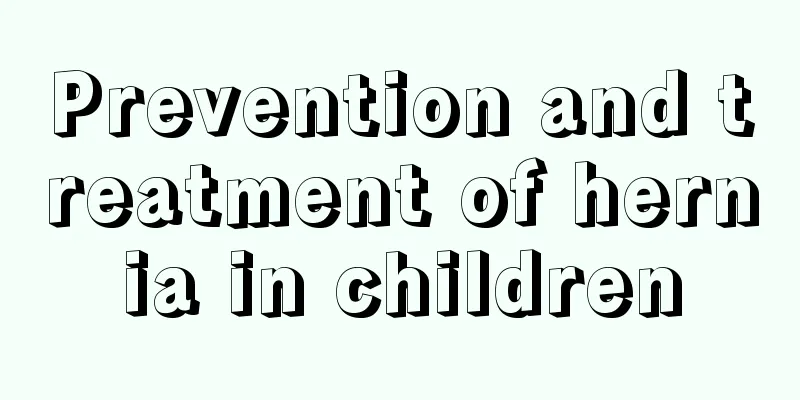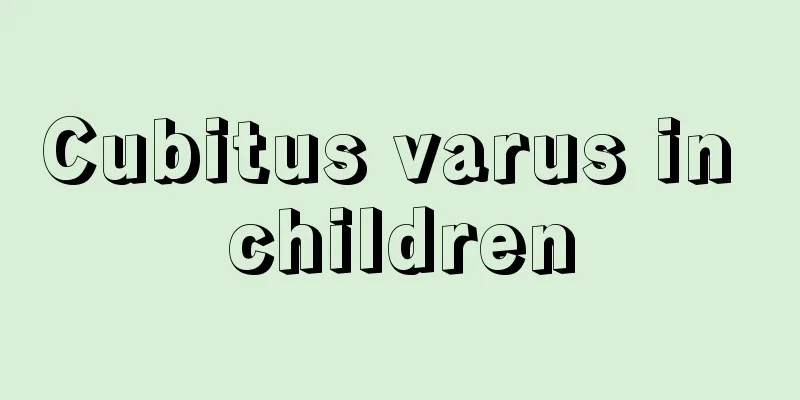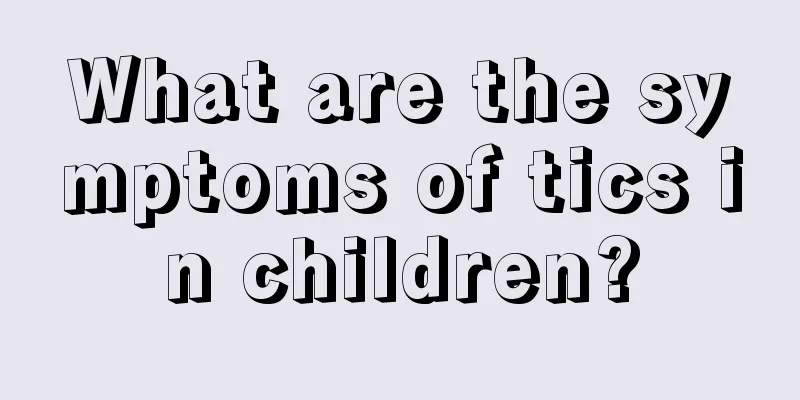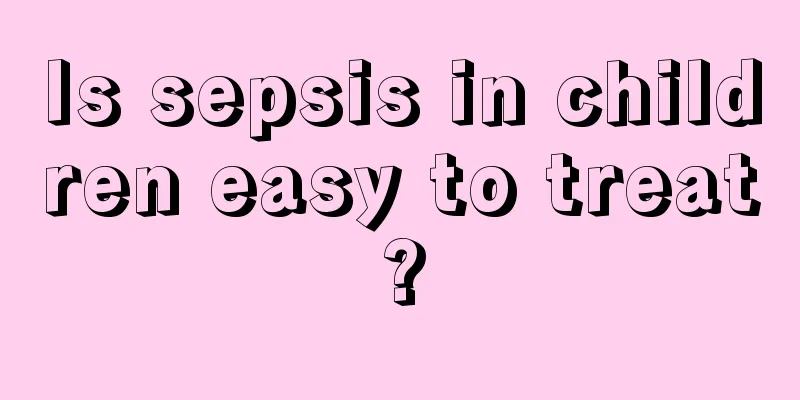Children's allergic purpura symptoms, pay attention to it after reading
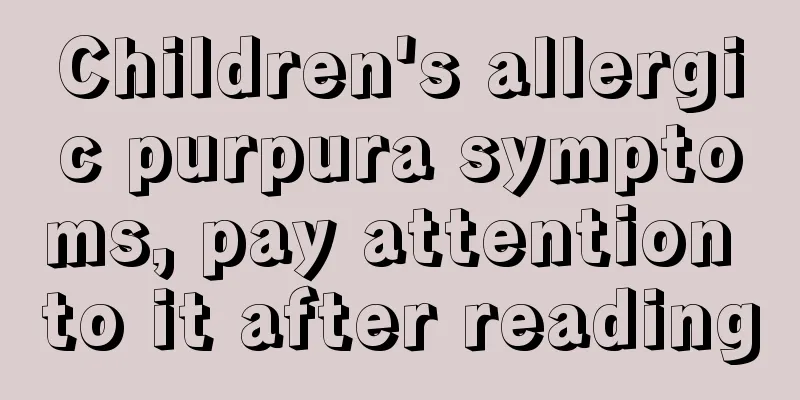
|
Henoch-Schonlein purpura is a relatively serious disease that can cause great harm to adults, let alone children. Children suffering from Henoch-Schonlein purpura will have a variety of symptoms as the disease progresses, the most common of which are nausea and vomiting, accompanied by severe pain. 1. Skin purpura is characterized by repeated appearance of skin purpura during the course of the disease, which is more common on the limbs and buttocks, with symmetrical distribution, more on the extensor side, appearing in batches, and less on the face and trunk; it initially appears as purple-red maculopapules that are higher than the skin surface, then turns brown and disappears, and may be accompanied by urticaria and angioedema. In severe children, purpura may merge into bullae with hemorrhagic necrosis. 2. Gastrointestinal symptoms More than half of the children experience recurrent paroxysmal abdominal pain located around the umbilicus or lower abdomen. The pain is severe and may be accompanied by vomiting, but hematemesis is rare. Some children have black or bloody stools, diarrhea or constipation, and occasionally have complications such as intussusception, intestinal obstruction or intestinal perforation. 3. Joint symptoms include swelling and pain in large joints such as the knees, ankles, elbows, and wrists, limited mobility, and single or multiple joints. There is fluid accumulation in the joint cavity, which can disappear within a few months without leaving any sequelae. 4. Renal symptoms The renal lesions caused by this disease are the most common secondary glomerular diseases in children. Kidney symptoms vary in severity. Most children have hematuria, proteinuria, and casts, accompanied by increased blood pressure and edema, which is called purpuric nephritis. A few present with nephrotic syndrome. Most kidney symptoms appear within 1 month of onset, but may also occur in the later stages of the disease. A few have nephritis as the first symptom. Although some children have hematuria and proteinuria that persist for months or even years, most recover completely. A few develop chronic nephritis and die of chronic renal failure. 5. Other symptoms include intracranial hemorrhage, leading to convulsions, paralysis, coma, aphasia, and bleeding symptoms such as nose bleeding, gingival bleeding, hemoptysis, and testicular bleeding. Occasionally, the circulatory system may be affected, resulting in myocarditis and pericarditis, or the respiratory system may be affected, resulting in laryngeal edema, asthma, and pulmonary hemorrhage. |
<<: What causes a child’s tongue to have thick white coating? The reasons are many and complex
>>: What can a thin child eat to gain weight? Parents need to understand this knowledge
Recommend
What are the causes of hunchback in children?
Children's physical development is the issue ...
Why does my baby often strain?
Because after the baby is born, the mother will d...
What causes white spots on children's nails?
In fact, in daily life, we must pay attention to ...
How to correct a child's head tilt
Children are treasures in the eyes of their paren...
The harm of children's tooth fillings killing tooth nerves
We have all experienced toothache. Some people sa...
Is autism screening for children good?
Childhood autism is a common disease in daily lif...
What to do if a baby girl has hernia
The hernia we usually talk about refers to congen...
What are the standards for children's mental health?
With the rapid development of society and the gra...
What to do if your child has a hoarse throat and phlegm
We all know that children are in a period of rapi...
Why is the child's buttocks red?
Some children always feel that their anus is part...
How long does it take for a newborn to recover from cerebral edema?
If a newborn suffers from cerebral edema, the har...
What's wrong with a child who has convulsions while drinking milk?
Breastfeeding is the only way for babies to get f...
What are the symptoms and treatments of rhinitis in children?
Children's rhinitis mainly occurs in some acu...
What are some effective folk remedies for treating children’s cough?
It is common for children to cough. If the child&...
Can babies eat papaya? Please learn how to eat correctly
Parents must be careful when feeding papaya to th...


